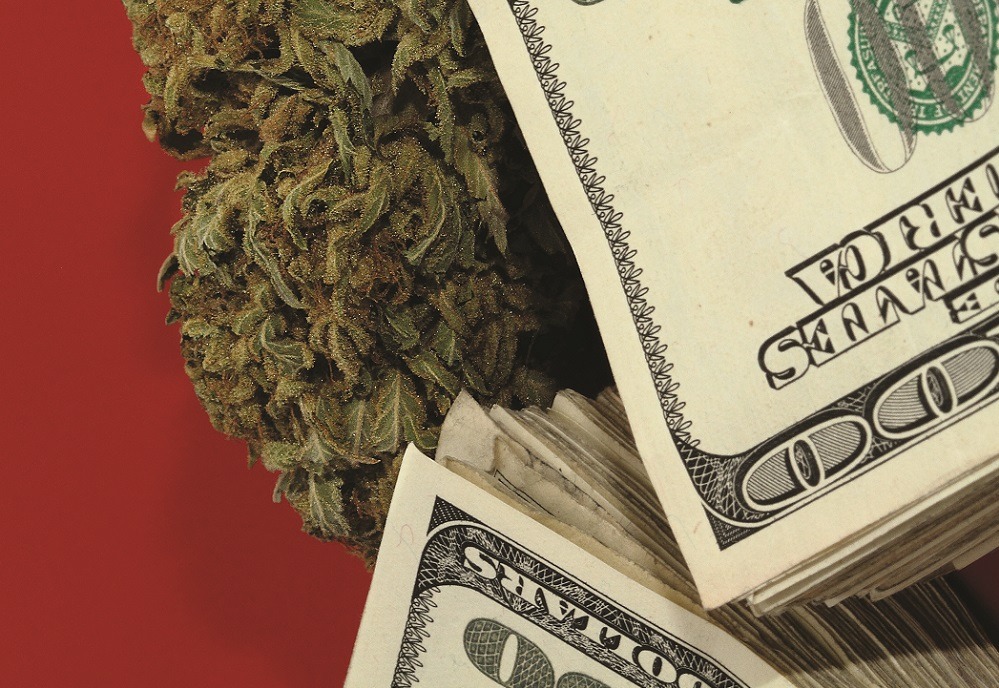Borrowers may have recourse against usury rates
By Michele Brooke
Because traditional business loans from banks are generally not accessible for cannabis businesses, many business owners seek investment capital from friends, family and private investors. These loans are generally memorialized by a promissory note. Many promissory notes include a term that guarantees interest to be paid on top of the principle loan amount. Lenders and borrowers often believe they can agree to an interest rate that is higher than what is actually legal. Except in certain circumstances, there is a maximum interest rate that can legally be charged.
Let’s briefly examine the subject of legal interest rates on promissory notes, and the consequences of charging illegal interest. This article will focus on California law, but every state has its own usury laws.
Under Article XV, Section 1 of the California Constitution, interest rates on the average promissory note by a non-licensed lender cannot be higher than 10% per year or 5% plus the Federal Reserve Bank of San Francisco’s discount rate on the 25th day of the month before the loan is contracted for or executed (whichever is earlier). If the interest rate is higher, it may be illegal or “usurious.”
Usury means charging an interest rate that exceeds what is permitted by law. The term “interest” includes not just a percentage of money added to the principal, but could also include fees, commissions and forbearances. An example of forbearance is where a lender refrains from suing a borrower when they are late on a loan payment, and instead, for an additional fee, agrees to extend the due date on the note.
It is not uncommon to see promissory notes in the cannabis industry that include usurious interest rates. We’ve seen promises to pay up to 50% on a loan, or a promise to double the lender’s money after the first successful harvest. Some people in this industry are so desperate for money that they enter into these kinds of agreements without knowing the interest rate is illegal. Loaning money to someone at a usurious rate could lead to a lawsuit. And the borrower may even be able to seek “treble damages,” meaning that the lender would have to repay the borrower three times the amount of illegal interest paid.
In California, these lawsuits generally have a two-year statute of limitations (or one year in cases where treble damages are sought). The statute of limitations refers to the time frame in which a lawsuit must be filed in court. Ignorance of the law is no excuse.
There are exceptions to usury laws (space does not permit us to explore all the exceptions), but for example, loans secured by real estate that are made or arranged by a licensed real estate broker and secured in whole or in part by a lien may be exempt. Loans made to California businesses with $2 million or more in assets, or loans of $300,000 or more may also be exempt from California usury law under certain conditions.
Martin v. Ajax Construction Company (1954) is an interesting example that typifies some of the promissory note situations in the cannabis industry. In this case, Mr. and Mrs. Martin loaned Ajax Construction Company $5,000 to build houses. The terms in the promissory note were: that for the $5,000 loan, Ajax was to repay $10,000 “on or before one year from the date hereof.” As it happened, after one year, Ajax was only able to pay $6,000 of the $10,000 owed. So the Martins gave Ajax a forbearance for $250 to give Ajax a 90-day extension. Still unable to pay, the Martins sued Ajax for the balance of the loan, $4,250.
The trial court found that Ajax was responsible for the $4,250 still due, but the appellate court disagreed. The appellate court found the promissory note charged an illegal amount of interest. And in the end, the court determined that Ajax did not have to pay the $4,250 to the Martins.
In conclusion, if you have borrowed or loaned money pursuant to a promissory note, you should examine the note to ensure it is not charging an illegal interest rate.
There are exemptions to usury rates, so you should have your lawyer examine any notes you have entered into to make sure they are legal.
Finally, if you have paid an illegal rate of interest on a promissory note, you may have legal recourse, and you should explore your options before the applicable statute of limitations expires.
Michele Brooke is an attorney in California who practices civil litigation and civil cannabis law (www.brookelawgroup.com). She is a member of Americans for Safe Access, NORML and the American Herbal Products Association.



